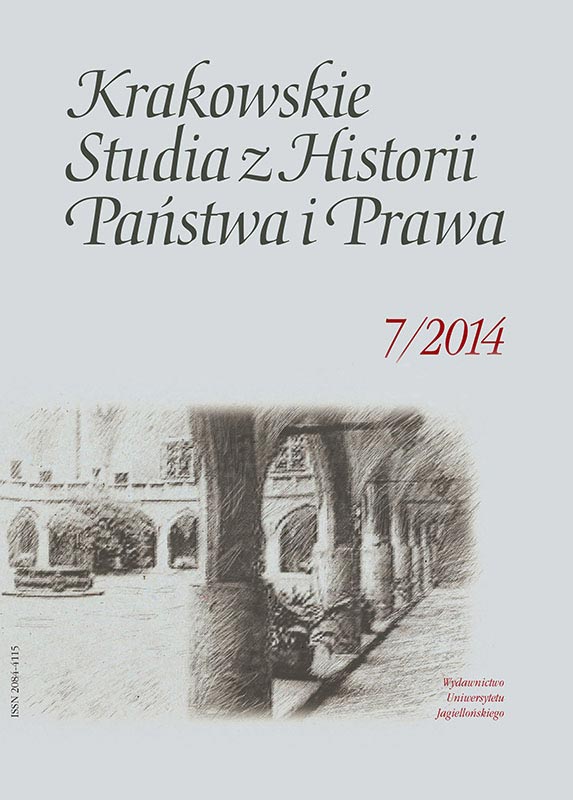Literackie wyobrażenia pojedynków oraz sądów honorowych, obywatelskich i polubownych na ziemiach polskich w XIX i na początku XX w.
Literary images of duels and courts of honour as well as citizens’ and arbitration courts on Polish territories of the 19th and early 20th centuries
Author(s): Danuta JanickaSubject(s): Law, Constitution, Jurisprudence, History of Law
Published by: Wydawnictwo Uniwersytetu Jagiellońskiego
Keywords: duel; arbitration; Court of Honor; The Citizen Court; arbitration tribunal; Alternative Dispute Resolution; Polish literature; positivism; Young Poland (modernism); satire; Kornel Makuszyński
Summary/Abstract: The present contribution depicts the specific forms of settling disputes on the Polish territories in the 19th and early 20th century as formed in the selected pieces of belles-lettres. The specific settling of disputes assumed above all the form of duels accompanied by honorary negotiations. To reach similar objective to so called courts of honour were employed as well as so called citizens’ courts that passed judgements on infamy of the Poles blamed for being dishonest in public affairs. Likewise, the arbitration courts were resorted to. They applied out-of-courts settlements of private disputes. The duels the honorary negotiations that were bound with them or the courts of honour were the most frequent literary motifs. At first the Polish writers, such as Ferdynand Chotomski and Edward Lubawski, depicted them in a satirical tone. However, Bolesław Prus created realistic images of duels, as well as Stefan Żeromski, who presented a true description of the citizens’ court. Kornel Makuszyński, in his turn, created a model image of the arbitration court. The detailed analysis made in the present contribution allow for the conclusion that literary texts can make up an interesting and valuable source in the research of legal historian.
Journal: Krakowskie Studia z Historii Państwa i Prawa
- Issue Year: 7/2014
- Issue No: 4
- Page Range: 573-592
- Page Count: 20
- Language: Polish

